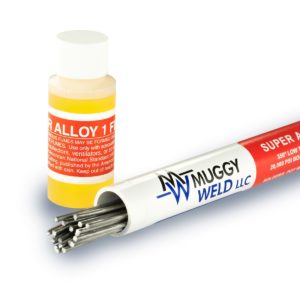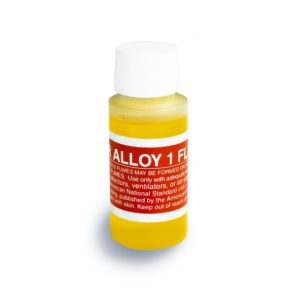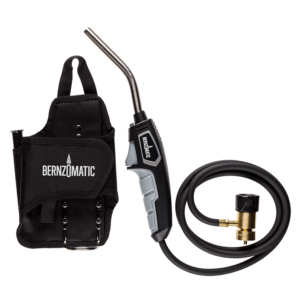Repair a Steel Auto Body Door Without Warpage
Auto body panels are typically constructed of thin sheets of steel, creating a lighter more economical automobile. Unfortunately, thin aluminum can be easily punctured and can also be easily warped in the repair process. For this repair, we use Super Alloy 1 low temperature solder to fill a small hole in a steel auto body panel.
As you can see, we’ve already pre-cleaned the steel auto body panel with a wire wheel, removing all contaminates and oxidation. This initial step in important, to ensure the filler rod bonds properly to the parent metal.
To begin the auto body repair, dip the end of the filler rod into the liquid flux, and apply the flux to the work area. Keep the bottle of flux close, as you’ll be reapplying throughout the auto body repair.
Thin steel requires very little preheating, so broadly heating the auto body panel with a torch will gradually bring the parent metal to proper working temperature. Super Alloy 1’s flux transforms from honey colored to root beer brown when the steel auto body panel reaches 350°F, indicating that it’s time to add the filler rod.
In this auto body repair video, the tinning technique is demonstrated. Tinning is a process of coating one metal with a thin layer of soft solder, and is one of the many techniques for which Super Alloy 1 is ideal.
Note: Super Alloy 1 may not adhere to the steel auto body panel if the metal is too hot. If this happens, pull the torch away and continue to rub the rod on the metal’s surface until the steel starts to cool to the correct melting temperature.
As Super Alloy 1 begins to adhere to the parent metal, you begin to see a thin layer of solder on solidify. Build these layers until the entire hole has been filled, then grind the finished solder and prepare the body panel for paint.
A second auto body repair technique is demonstrated, heating the rod to the plastic range or soft stage. The plastic range is when the solder is neither a solid nor a liquid. It is possible to coil the rod upon itself in this stage and push to coil across the hole to bridge the gap. Of course, you could always use a backing plate so the solder doesn’t fall through, but this video to demonstrates how to bridge a large hole without a backing plate.
Note: Please observe all AWS Safety & Health Guidelines when using Muggy Weld products.


